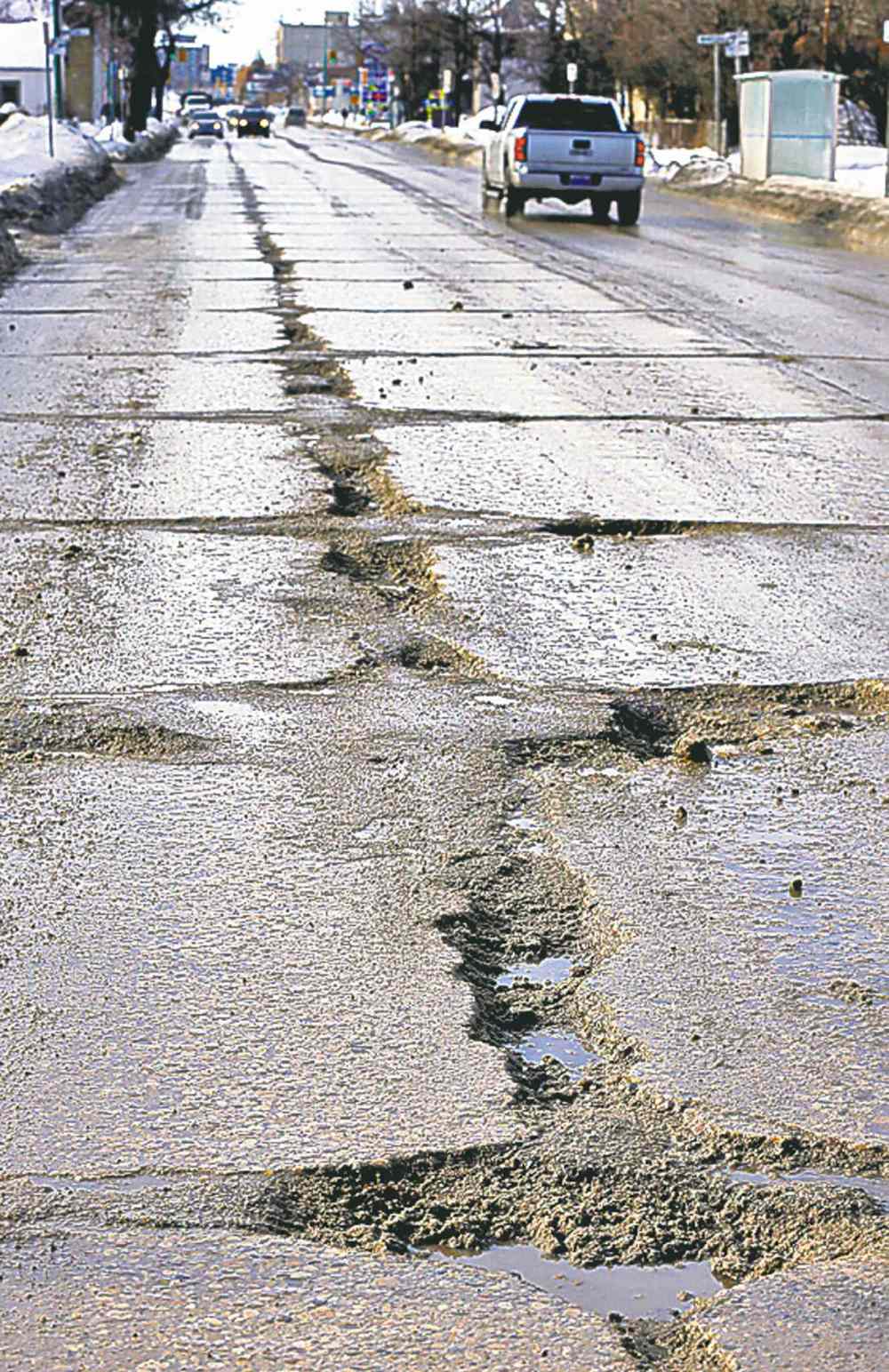Hot mix touted as pothole solution
Advertisement
Read this article for free:
or
Already have an account? Log in here »
To continue reading, please subscribe:
Monthly Digital Subscription
$1 per week for 24 weeks*
- Enjoy unlimited reading on winnipegfreepress.com
- Read the E-Edition, our digital replica newspaper
- Access News Break, our award-winning app
- Play interactive puzzles
*Billed as $4.00 plus GST every four weeks. After 24 weeks, price increases to the regular rate of $19.00 plus GST every four weeks. Offer available to new and qualified returning subscribers only. Cancel any time.
Monthly Digital Subscription
$4.75/week*
- Enjoy unlimited reading on winnipegfreepress.com
- Read the E-Edition, our digital replica newspaper
- Access News Break, our award-winning app
- Play interactive puzzles
*Billed as $19 plus GST every four weeks. Cancel any time.
To continue reading, please subscribe:
Add Free Press access to your Brandon Sun subscription for only an additional
$1 for the first 4 weeks*
*Your next subscription payment will increase by $1.00 and you will be charged $16.99 plus GST for four weeks. After four weeks, your payment will increase to $23.99 plus GST every four weeks.
Read unlimited articles for free today:
or
Already have an account? Log in here »
Hey there, time traveller!
This article was published 21/03/2014 (4226 days ago), so information in it may no longer be current.
The solution to Winnipeg’s pothole problems might be found later today in the parking lot of the Thunderbird Restaurant.
That’s where funeral director — and would-be mayoral candidate — Mike Vogiatzakis will demonstrate the effectiveness of a hot-mix-asphalt patching compound.
“This stuff really works,” Vogiatzakis said. “It will save the City of Winnipeg millions of dollars.”

Vogiatzakis convinced the maker of a commercial product, Pellet Patch, to demonstrate how the blend of asphalt cement, special additives and crumbled rubber from recycled tires can permanently fill a pothole. The material is the subject of a long-term study by the Genesee County Road Commission, in Flint, Mich., where the results so far have been positive.
John H. Daly III, director of the Genesee County Road Commission, said the patching material was first applied last April and it survived the winter.
“It seems to be holding up OK,” Daly said, adding 90 per cent of the potholes patched last April with the new blend remained filled throughout the spring, summer and this past winter.
Daly, who used to live in Grand Forks, N.D., and is familiar with the region’s thaw-freeze cycle that breaks up the pavement and results in potholes, said the winters and springs in the two communities are similar.
Like Winnipeg, Genesee County uses a cold-mix patching material during the late winter and early spring to fill potholes. Both communities are expecting this spring to be the worst pothole season ever experienced.
Winnipeg spends an average of $1.5 million on pothole-patching every year. In 2013, when spring didn’t arrive until late April, the city spent $2.5 million on temporary patches.
The cold mix, which is used now and can be stored outside all winter, is heated indoors overnight before being trucked to city streets and shovelled by hand. It can last as little as an hour or as long as an entire season, depending on the traffic volume on the street in question.
Daly said the Pellet Patch material worked so well that at one site, where the road disintegrated around the pothole, the patching material retained its shape.
“The material, once inside the pothole, still retains its flexibility,” Daly said. “The road deteriorated, the pellet patch bounced out of the hole and bounced down the road 40 yards — because of the flexibility of the material.”
Genesee County is observing how well the material remains intact for another two-year period.
The pothole experiment is at the Thunderbird Restaurant, 1970 McPhillips St., at 1 p.m.
aldo.santin@freepress.mb.ca




